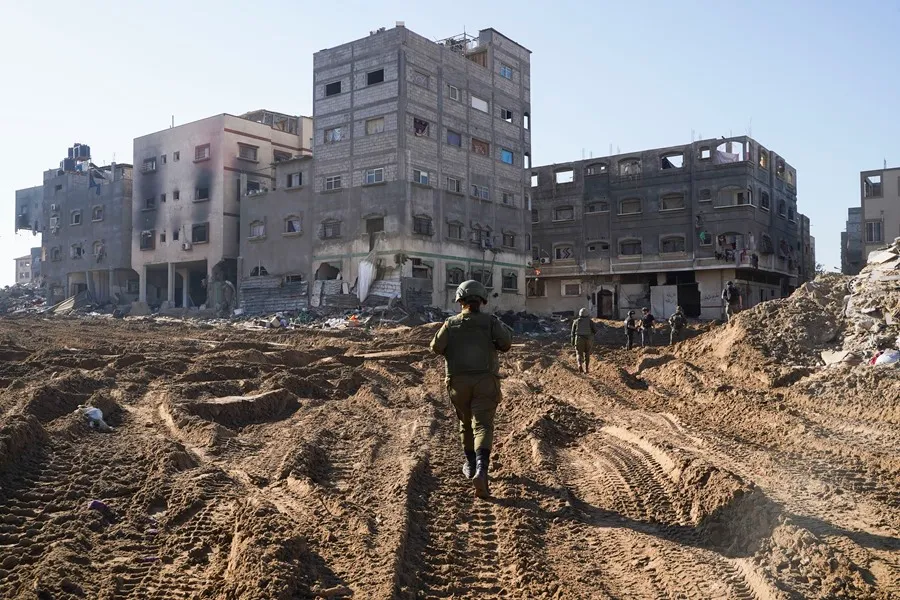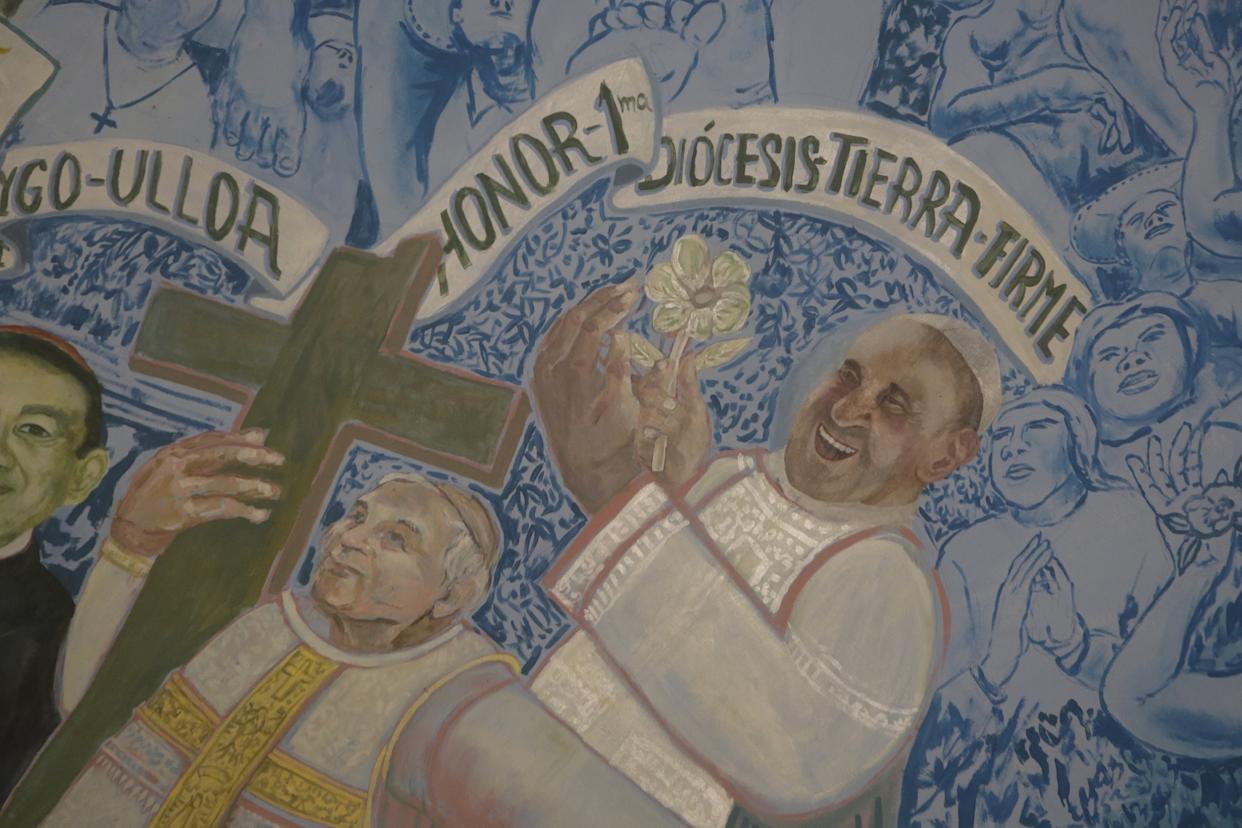International
Separate negotiators and last-minute details, this is how the ceasefire in Gaza was negotiated

After eight months of negotiations mediated by the United States, Qatar and Egypt, discussions to reach a ceasefire agreement between Hamas and Israel in Gaza continued until a few hours before the announcement, with intermediaries walking through corridors and resolving the last fringes of a crucial truce for the hostages captured in the Strip and for the Palestinian civilian population, affected by an unprecedented humanitarian crisis.
Senior US officials revealed on Wednesday details of negotiations that had not been resolved for months due to suspicions and positions that were difficult to reconcile between Israel and representatives of the Palestinian group in Hamas.
“The fact that we have such a detailed agreement is that, for example, we were working last night until three in the morning, solving every last detail, leaving little to improvisation and making sure that expectations were very clear for both parties,” said in a call to the press one of the officials of the Joe Biden Administration present in these months of intense talks in Doha (Qatar).
According to officials present in the last great diplomatic achievement of the only presidential mandate of an outgoing Biden, these weeks work was done on what they define as “proximity conversations,” with representatives of Israel and Hamas, declared mortal enemies, dialoguing through Qatari and Egyptian intermediaries who acted as messengers between rooms on different floors of the same building.
Another element that has led one of the participants to define this ceasefire agreement in Gaza as “unprecedented” and “with much at stake for everyone”, is the “historic” collaboration between Biden’s teams and President-elect Donald Trump, whose impetus and pressure on Israeli Prime Minister Benjamin Nentanyahu, without forcing a total change in the initial White House plan, was key.
Trump’s envoy in the Middle East, Steve Witkoff, worked side by side in recent days with CIA director Bill Burns, or Brett McGurk, Biden’s envoy for Middle East issues, while the team of Qatar’s Foreign Minister, Mohamed bin Abderrahmán, approached positions just five days after the change of tenant at the White House.
“They exchanged roles. While McGurk was negotiating in Doha, we thought that Steve could have a conversation with Prime Minister Netanyahu and he went to do it himself in person (this weekend),” said the senior Washington official.
The Qatari foreign minister finally announced this afternoon, Washington time, the agreement from Doha, something that according to US sources was not entirely clear until “after noon.”
That transition between Biden and Trump, which will take place on January 20, created, according to the mediators, a deadline that has served to force the parties to give in in positions that were entrenceded in the summer and that lived a before and after with the death at the hands of Israeli soldiers and unexpectedly of the leader of Hamas, Yahya al Sinwar.
The agreement, which consists of three phases, will reach its central part with the exchange of a number of Palestinian prisoners for each Hamas hostage released and delivered to the Israelis, while establishing the conditions for a permanent ceasefire, after 1,200 dead in the attack of October 7, 2023 of the Islamist militia in Israel and more than 46,000 dead in Gaza, according to health sources in the Strip.
Biden had a marathon of calls last week with the leaders of Egypt, Qatar and Israel. “Qatar and Egypt have had their teams working hard for months. In the end, we have come to know each other very well,” said an American mediator.
According to the same source, the death of Sinwar and the leader of Hezbulah, Hassan Nasralá, at the end of September – something to which Washington attributes to Israel’s indisputable military power in the region – were key to getting Hamas to accept the terms of the agreement that must now be implemented for six weeks in a first phase that must address the ceasefire, withdrawal of troops from Gaza and release of hostages and prisoners.
International
DHS Secretary Kristi Noem’s Purse Stolen in D.C. Restaurant Heist

The purse of Kristi Noem, Secretary of the Department of Homeland Security, was stolen on Sunday night at a restaurant in Washington, D.C., Fox News Digital confirmed through several agency sources.
The handbag, taken by a white male wearing a mask, reportedly contained $3,000 in cash along with personal documents, including her passport, keys, driver’s license, and DHS badge, according to an agency spokesperson.
“Her entire family was in town, including her children and grandchildren. She was celebrating her retirement by treating them to dinner, activities, and Easter gifts,” the spokesperson added.
Crime continues to be a significant issue in the U.S. capital, particularly theft. However, violent crime reached its lowest level in 30 years last year, according to the Office of the Attorney General at the time.
International
Pope Francis: The Quiet Architect Behind the U.S.-Cuba Thaw

When then-U.S. President Barack Obama and Cuban President Raúl Castro announced the reestablishment of diplomatic relations in December 2014—after decades of hostility—there was a third figure present in both speeches: Pope Francis.
This thaw in U.S.-Cuba relations—later reversed by Donald Trump—was the result of behind-the-scenes negotiations personally encouraged by Pope Francis, who passed away on Monday at the age of 88, just over a year after becoming head of the Catholic Church.
Upon learning the news of the breakthrough, the pontiff humbly stated, “This was made possible thanks to the ambassadors and to diplomacy,” which he called “a noble, very noble job.”
In 2015, months after the announcement, Raúl Castro visited the Vatican and met with the pope. Over time, Castro developed a fondness for Francis that he never had for his predecessors, Benedict XVI and John Paul II. “If the Pope continues talking like this, sooner or later I’ll start praying again and return to the Catholic Church—and I’m not joking,” said the younger Castro, who, like his brother Fidel (1926–2016), had been educated by Jesuits—the same order to which Pope Francis belonged.
Pope Francis visited Cuba later that year. Just days before his arrival, the Cuban government announced the pardon of 3,522 common prisoners as an act of clemency.
While in Havana, the pope met with Fidel Castro, who gave him a first edition of the book Fidel and Religion by Brazilian friar and liberation theologian Frei Betto.
Criticism from the Opposition
Francis’s diplomatic approach also drew criticism from parts of the Cuban opposition. In a 2022 interview with Univision, the pope revealed he had “a human relationship” with Raúl Castro.
International
Dominican Republic Declares Three Days of Mourning for Pope Francis

Dominican Republic President Luis Abinader has declared three days of national mourning starting Tuesday following the death of Pope Francis, who passed away on Monday at the age of 88 in his residence at the Casa Santa Marta.
In an official decree, Abinader highlighted the pope’s legacy “as a global leader who promoted significant reforms within the Catholic Church and was known for his humility, openness to dialogue, and commitment to peace among nations.”
During the mourning period, the national flag will be flown at half-staff at military facilities and public buildings.
According to a statement from the Office of the Presidency, although Pope Francis never visited the Dominican Republic during his papacy, he maintained a close relationship with the country. He expressed solidarity and empathy during difficult times, including offering prayers for the victims of the recent tragedy at a Santo Domingo nightclub on April 8, which claimed 232 lives and left more than 180 injured.
-

 Central America4 days ago
Central America4 days agoNicaraguan Exiles to Mark 7th Anniversary of 2018 Protests with Global Commemorations
-

 International4 days ago
International4 days agoDominican ‘False Hero’ Arrested for Faking Role in Nightclub Collapse That Killed 231
-

 International3 days ago
International3 days agoACLU seeks emergency court order to stop venezuelan deportations under Wartime Law
-

 Central America3 days ago
Central America3 days agoUN complaint filed against Costa Rica over detention of migrant children
-

 International2 days ago
International2 days agoThousands rally nationwide against Trump’s threat to U.S. democracy
-

 Central America1 day ago
Central America1 day agoSenator Van Hollen Meets with Deported MS-13 Member in El Salvador; Trump and Bukele React
-

 International1 day ago
International1 day agoPope Francis Appears for Easter Blessing, Calls for Peace and Religious Freedom
-

 International2 hours ago
International2 hours agoDominican Republic Declares Three Days of Mourning for Pope Francis
-

 Central America2 hours ago
Central America2 hours agoCardinal Rodríguez to Attend Funeral of Pope Francis: “He Was Very Dear to Me”
-

 Central America2 hours ago
Central America2 hours agoNicaragua’s Ortega and Murillo Mourn Pope Francis, Acknowledge ‘Difficult’ Relationship
-

 International2 hours ago
International2 hours agoDHS Secretary Kristi Noem’s Purse Stolen in D.C. Restaurant Heist
-

 International2 hours ago
International2 hours agoPope Francis: The Quiet Architect Behind the U.S.-Cuba Thaw















